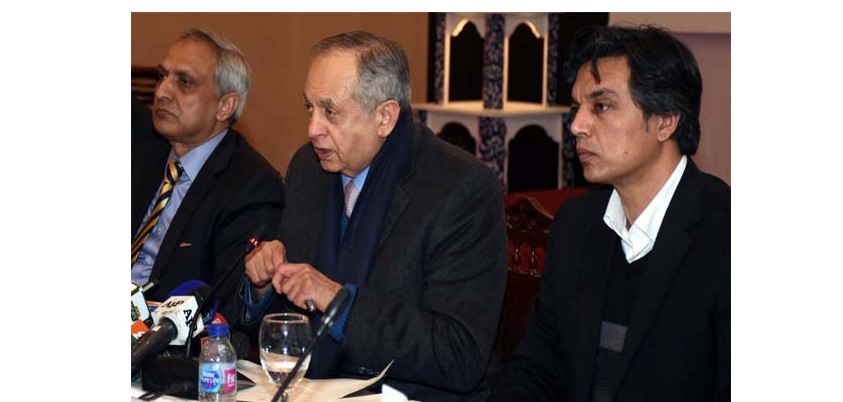Razak vows for implementation of e-Commerce policy

ISLAMABAD, – Advisor to the Prime Minister on Commerce, Textile, Industry and Production and Investment Abdul Razaq Dawood on Monday said that implementation of e-Commerce policy was main focus of the government to promote the digital economy for providing the connectivity with global chain.
In past regimes, there was gape in implementation of e-commerce policy and in this regards the government has evolved the short, medium and long term strategic policy frame for implementation of e-commerce policy to enhance the services exports in the country, he said this while addressing the press conference along with other senior official, besides the concluded session of two-day stakeholder’s consultation session on e-Commerce Policy Implementation here.
The advisor said the government wants to increase exports, which remained at $ 5 billion for growth in country’s economy.
He informed till now, three meetings had been successfully arranged so far.
He said throughout these meetings, the focus of ministry of commerce had always remained to harmonize and simplify the procedures for robust growth of e-Commerce.
Highlighting the significance of e-Commerce and the resolve of the present government to facilitate and promote this sector, the adviser emphasized that the ministry of commerce was actively engaged with relevant stakeholders for effective implementation of this policy since its approval from the federal cabinet on October 1, 2019.
The private sector, while appreciating the efforts of ministry of commerce to engage them in e-Commerce policy implementation process, also indicated the bottlenecks being faced by them in this area, he said.
The adviser said the government wanted to resolves the taxation issues, payment digitization, consumer protection, training and capacity building of SMEs including women entrepreneurs operating from the remote areas of the country.
The adviser paid full attention to these concerns and encouraged the participants to avail this two day session and compile their concerns with practical remedies for consideration of the same by the National e-Commerce Council, in its meeting on January, 14 of this year.
The adviser added that a lot of good work had already been done in the form of policy formulation and the best minds of public and private sector worked tirelessly towards this goal.
Razak said now the government had been striving to carry it forward through its effective implementation.
For this, the government, the private sector and the academia needs to work together to chart a path forward in this increasingly dynamic and ever evolving sector.
He added that with the collective effort of all, this workshop will help us in finding a strategic road map for implementation of this policy.
A huge number of stakeholders from public and private sector attended the inaugural session of the subject event.
While the Adviser to the Prime Minister on Commerce, Abdul Razak Dawood has also chaired the first formal meeting of the National e-Commerce Council.
A huge number of executive and members ranging from State Bank of Pakistan, Federal and Provincial Departments of Industries, Federal and Provincial Revenue authorities, National Information Technology Board, Securities and Exchange Commission of Pakistan, Ministry of IT and Telecom, Consumer Rights Commission of Pakistan, Trade Development Authority of Pakistan, Pakistan Post, Pakistan Software Houses Association, Online Marketplaces, Telecom and Logistics companies, startups and Micro enterprises and many other attended the subject meeting.
The meeting also brought a concluding end to the two day workshop on e-Commerce Policy Implementation, inaugurated by the Adviser on 13th January, 2020 and was attended with great enthusiasm by one hundred and nineteen participants from public and private sector.
According to the plan of the program, six working groups were created, covering all nine pillars of the Policy including; regulatory environment, financial inclusion and digitization through payment infrastructure, empowering youth and SMEs, consumer protection, taxation, ICT infrastructure, logistics and engagement in multilateral negotiations.
The Adviser paid great head to all the suggestions and requested the heads of the working groups to prioritize these suggestions as short, medium and long term for their effective implementation. He ensured that further meetings will also be arranged to successfully implement the strategies deliberated upon.
Related News

China Exports Drop More Than Expected in Setback to Recovery
Islamabad, Apr 12 (DNA): Experts lauded China’s role in advancing Hybrid Rice cultivation in Pakistan,Read More

PSX closed at historic high level of 69,619 points
ISLAMABAD, Apr 8 (APP/DNA): The 100-index of the Pakistan Stock Exchange (PSX) continued with bullishRead More


Comments are Closed